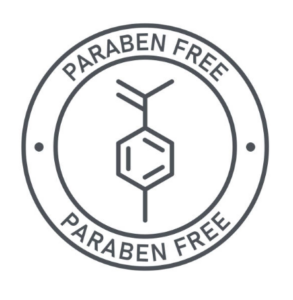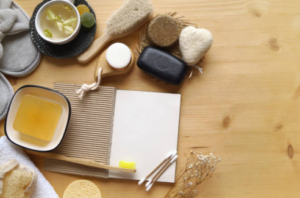The Paraben Predicament

In recent years, the beauty industry has witnessed a significant shift towards clean, natural, and non-toxic skincare and cosmetics. Among the many controversial ingredients that have come under scrutiny, parabens have garnered particular attention. Used for decades as preservatives in personal care products, parabens have increasingly fallen out of favor in clean beauty circles due to concerns about their potential health risks. In this comprehensive guide, we’ll delve into the lowdown on parabens, exploring what they are, why they’re used, and why they’re increasingly being avoided in clean beauty formulations.
Parabens are a group of synthetic chemicals commonly used as preservatives in skincare, haircare, and cosmetic products. They have been utilized since the 1950s due to their antimicrobial properties, which help prevent the growth of bacteria, mold, and yeast, thereby extending the shelf life of products. Parabens are inexpensive to produce, effective at low concentrations, and have a broad spectrum of antimicrobial activity, making them popular choices for preserving personal care items such as lotions, creams, shampoos, and makeup.
Why Parabens Are Falling Out of Favor
Despite their widespread use, parabens have come under scrutiny due to growing concerns about their potential health risks. Several studies have raised questions about the safety of parabens and their possible links to adverse health effects. While the scientific evidence is not conclusive, here are some reasons why parabens are increasingly being avoided in clean beauty formulations:
- Endocrine Disruption: Parabens have been shown to mimic estrogen in the body, leading to concerns about their potential to disrupt hormone function. Research has indicated that parabens can accumulate in human tissues and have been detected in urine, breast tissue, and other bodily fluids. While the extent of their impact on human health is still being studied, some experts warn that long-term exposure to parabens may pose risks, particularly to hormonal balance and reproductive health.
- Allergic Reactions: Parabens have been associated with allergic reactions and skin sensitivities in some individuals. While allergic reactions to parabens are relatively rare, they can occur, particularly in people with sensitive skin or pre-existing allergies. Symptoms may include redness, itching, inflammation, and dermatitis. As a result, many consumers opt for paraben-free products to minimize the risk of adverse skin reactions.
- Environmental Concerns: Parabens are not only potentially harmful to human health but also to the environment. Once washed off the skin or rinsed down the drain, parabens can enter the water supply and ecosystem, where they may persist and accumulate over time. Studies have shown that parabens have been detected in water sources, aquatic organisms, and even in remote environments such as the Arctic. Their presence in the environment raises concerns about their impact on wildlife and ecosystems.
- Regulatory Scrutiny: In response to growing concerns about the safety of parabens, regulatory agencies and governing bodies have taken action to restrict or regulate their use in personal care products. The European Union, for example, has banned certain parabens in cosmetics, while the United States Food and Drug Administration (FDA) continues to evaluate the safety of parabens and monitor their use in consumer products.
Alternatives to Parabens in Clean Beauty
As awareness of the potential risks associated with parabens has grown, many consumers have sought out paraben-free alternatives in their skincare and cosmetics. Fortunately, there are numerous natural and synthetic alternatives to parabens that can effectively preserve personal care products without the same concerns about safety or environmental impact. Some common alternatives to parabens include:
- Natural Antioxidants: Ingredients such as vitamin E (tocopherol), vitamin C (ascorbic acid), and grapefruit seed extract have antioxidant properties that can help extend the shelf life of products by preventing oxidation and microbial growth.
- Essential Oils: Certain essential oils, such as tea tree oil, rosemary oil, and lavender oil, have antimicrobial properties that can inhibit the growth of bacteria and fungi, making them effective natural preservatives in skincare formulations.
- Plant Extracts: Plant-derived extracts such as rosemary extract, green tea extract, and grape seed extract contain natural compounds that possess antimicrobial and antioxidant properties, making them valuable ingredients in clean beauty products.
- Phenoxyethanol: Phenoxyethanol is a synthetic preservative that is often used as an alternative to parabens in clean beauty formulations. It has broad-spectrum antimicrobial activity and is considered safe for use in cosmetics when used in accordance with regulatory guidelines.

In conclusion, while parabens have been widely used as preservatives in personal care products for decades, concerns about their potential health risks have led to their declining popularity in clean beauty formulations. As consumers become more conscious of the ingredients in their skincare and cosmetics, there is a growing demand for paraben-free alternatives that are safer for both human health and the environment. By opting for paraben-free products, consumers can minimize their exposure to potentially harmful chemicals and support the growing movement towards cleaner, safer, and more sustainable beauty practices.




